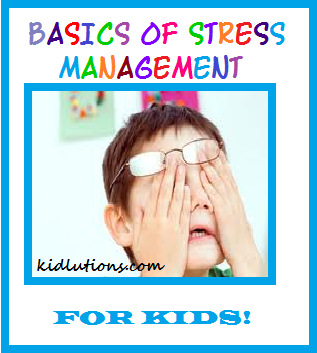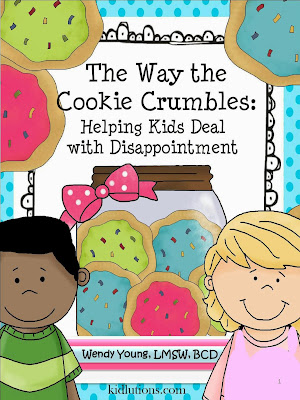Can Your Kids Spell S-T-R-E-S-S?
Note: This blog-post originally appeared on Lori Lite's "Stress Free Kids" blog. If you haven't checked out Lori's blog and website, I would highly recommend them!
by Wendy Young
S-T-R-E-S-S is a companion in the lives of children, just as sure as it is in the lives of adults. While the issues that cause stress for kids differs from adults, the outcome can be the same. When stress goes unchecked and continues to mount, it can manifest in fatigue, lethargy, anxiety, irritability, sleeplessness, tearfulness, anger and depression. Stress can cause wear and tear and have a cumulative effect on kids and adults alike. But, it doesn’t have to be this way. Stress can be managed, and the earlier we start teaching kids how to do so, the better the outcome.
What’s the Big Deal?
Helping kids identify and manage emotions is a key social-emotional skill. When we teach our kids to master their emotional lives, they can move on to find success in almost every other area of their lives, including academics, friendships, relationships, and ultimately, their career path. Kids who are taught social-emotional skills become adults who can handle life with greater ease.
Where Do We Start?
We teach our kids how to brush their teeth. We teach them how to tie their shoes. We teach them to look both ways before they cross the street. However, we often fall short when it comes to teaching them how to manage stress. In all likelihood, the majority of us can say that our parents never taught us. And nobody ever taught them. And so on, and so on. It’s time for a change.
B-B-B-Basics of Stress-Management for Kids
1. Body Basics - Help your child learn to recognize and identify changes that take place within his body when he is getting stressed. Tight fists, clenched jaws, butterflies in the stomach, sweaty palms, trouble concentrating.
Next, teach him to use a few quick tools to reduce the stress. The following tools are no-cost, drug-free and can be done anywhere!
2. Breathe – Breathing is essential to helping ourselves find a place of calm. When we are stressed, we tend to breath shallow, and our breath is focused in our chest. Teach your child to breathe slowly in and out, blowing up his belly like a balloon.
3. Be Aware - … of your thoughts, that is. When we are stressed, our thoughts tend to become negative, which just fuels the fire. Point out to your child, “When you feel stressed out, you need to pay attention to what you are thinking. If you are thinking things like ‘I can’t stand this,’ or, ‘I can’t take this,’ you are adding to your stress. Instead you can say this to yourself, ‘I can handle this.’ ‘I don’t like this, but I will get through it.’ ‘I’ll wait for this to pass, and I know it will.’”
Remember, it takes awhile to learn a new behavior. Your child will need reminders, practice and support until these new skills take hold. Be patient. Practice the skills yourself and let your child hear you “share out loud” as you practice them.
In addition to working with your child, incorporate multi-modal ways to combat stress, such as Stress Free Kids books and CDs. Reading books about stress-management and listening to relaxation CDs emphasizes the point and normalizes the need to practice sound stress management techniques on a regular basis.
Wendy Young, LMSW, BCD, is the Founder of Kidlutions: Solutions for Kids and the Kidlutions Preferred Product Awards for Social-Emotional Development. She is the behavioral health expert for Momtourage.com, an affiliate of NBC studios, and provides mental health consultation to early childhood programming. She is the mom of three school-aged children. In her spare time, she blogs at Spin-Doctor Parenting, where she helps readers stay on the saner side of parenting. You can find her on facebook and twitter.







Comments